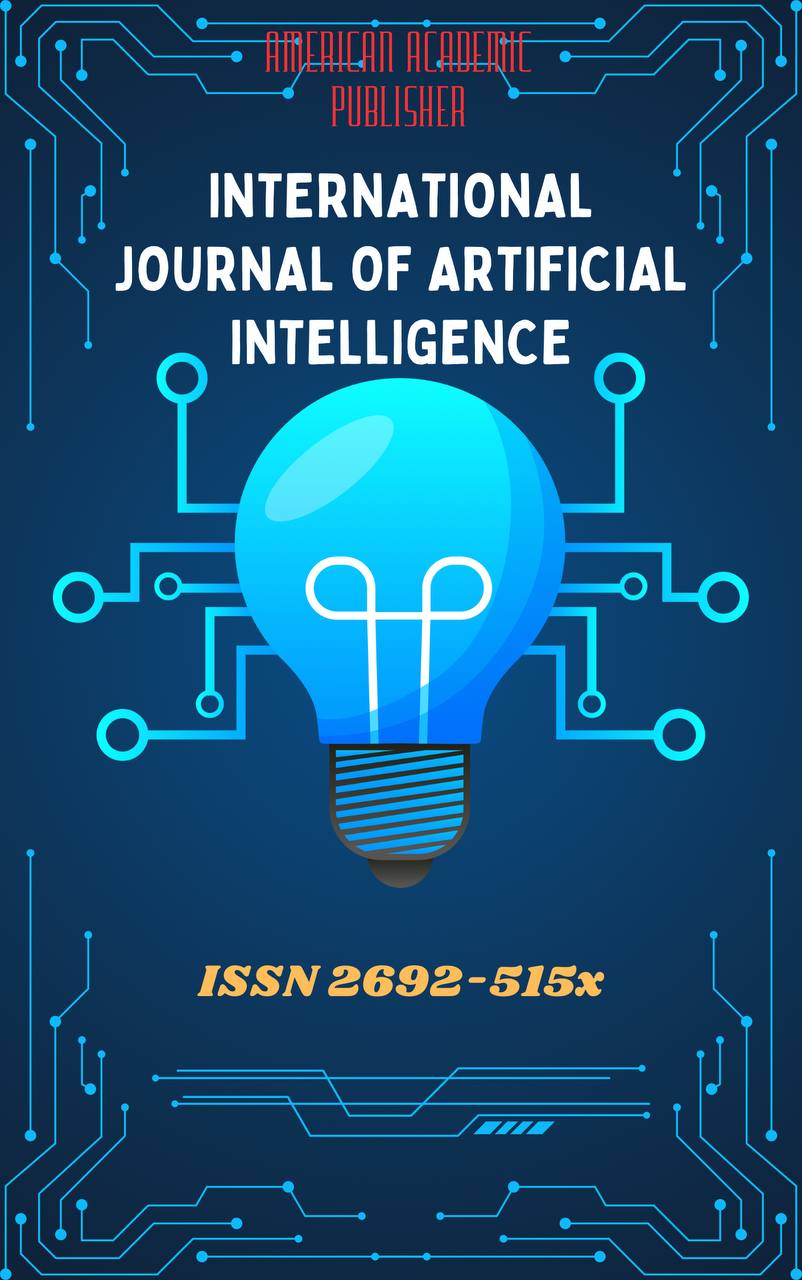 Articles
| Open Access |
Articles
| Open Access | THE ROLE OF CHILDHOOD CULTURAL EXPERIENCES IN SPIRITUAL SECURITY ISSUES
Jumanazarov Zohidjon Eldor o‘g‘li , Uzbekistan State Institute of Arts and CultureAbstract
This article supports the concept of transformative education, which is considered a process that encourages raising consciousness, critical thinking, personal development, and individualization. Through this, art and culture also impact a person’s spiritual life by fostering aspirations toward higher goals, promoting goodness, and enhancing feelings of kindness and compassion towards others.
Keywords
childhood experiences, culture, music education, transformative education.
References
Abril, C. R and Kelly-McHale, J. (2016). Thinking about and Responding to Culture in General Music. In Carlos R. Abril and Brent M. Gault (Eds.) Teaching General Music. New York: OUP pp. 241-263.
Akuno, E. A. (2005). Issues in Music Education in Kenya. Nairobi: Emak Music Services.
Akuno, E. A. (1997). The Use of Indigenous Kenyan Children’s Songs in the Development of a Music Curriculum and Pedagogy for Primary School in Kenya. Published PhD Thesis. Kingston-Upon-Thames, Surrey: Kingston University.
Blacking, J. (1967). Venda Children’s Songs. Chicago: Chicago University Press
Chernoff, J. M. (1979). African rhythm and African sensibility. Chicago: University of Chicago.
Clayton, M. (2011). ‘The Social and Personal Functions of Music in Cross-cultural Perspective. In Susan Hallam, Ian Cross and Michael Thaut (Eds). The Oxford Handbook of Music Psychology. Oxford: OUP pp. 35-44.
Dirks, J.M. (1998). Transformative Learning Theory in the Practice of Adult Education: An overview. PAACE Journal of Lifelong Learning Vol 7: pp 1-14.
Doddington, C. (2015). Embodied Arts Experience: The educational value of somaesthetics. In Mike Fleming, Liora Bresler and John O‘Toole (Eds). The Routledge International Handbook of the Arts and Education. Londond: Routledge. Pp.60-67.
Emberly, A. and Davidson, J. (2011). From the Kraal to the Classroom: Shifting musical arts practices from the community to the school with special reference to learning Tshigombela in Limpopo, South Africa. IJME Vol. 29 (3) pp 265-282.
Hallam, S and Raymond MacDonald (2011). The Effect of Music in Community and Educational Settings. In Susan Hallam, Ian Cross and Michael Thaut (Eds). The Oxford Handbook of Music Psychology. Oxford: OUP pp. 471 – 480.
Hargreaves, D. (1986). The Developmental Psychology of Music. Cambridge: Cambridge University Press.
Ho, Woi-Chung (2010). Moral Education in China’s Music Education: Development and Challenges. IJME Vol. 28 (1) pp 71-87.
Bethke, Andrew-John. (2014). Music in Kenyan Christianity: Logooli Religious Song. Jean Ngoya Kidula. 2013. Bloomington: Indiana University Press. 17 bw illus., 53 music exs, index, 312pp.. African Music: Journal of the International Library of African Music. 9. 149-151. 10.21504/amj.v9i4.1892.
Lee, A (2016). Implementing Character Education Program through Music and Integrated Activities in Early Childhood Settings in Taiwan. IJME 34( 3). Pp. 340-351.
Mackenzie, K. and Clift, S. (2008). The MusicStart Project: An evaluation of the impact of a training program to enhance the role of music and singing in educational settings for children aged three to five years. IJME Vol. 26(3) PP. 229 – 242.
Urmanova L., Triguloya A., Ibraximjanova G. Music Theory. – Tashkent.: Nizomiy nomidagi TDPU. 251 p.
Alimdjanova N. Music Literature. – Tashkent.: TDMRXOM. 2020. 112 p.
Mwaniki, H. S. K. (1986). Embu Traditional Songs and Dances. Nairobi: Kenya Literature Bureau
Nyland, B. and Acker, A. (2012). Young Children’s Musical Exploration: The potential of using learning stories for recording, planning and assessing musical experience in a preschool setting. IJME Vol. 30(4) pp. 328-340.
Tafuri, J. (2008). Infant Musicality: New research for educators and parents.
Farnham: Ashgate. Ward, S. C. (2015). ‘The role of the Arts in Society’ in Mike Fleming, Liora Bresler and John O’Toole (Eds). The Routledge International Handbook of the Arts and Education. London: Routledge. Pp. 106-121.
White, E. G. (1952). Education. Grand Rapids, Michigan: EG White Estates.
Zake, G. S. (1985) Folk Music of Kenya Nairobi: Uzima Press.
Eldor o‘g‘li J. Z. et al. MUSIQANING BOLALARNI SAVODXONLIGI, PERSEPTIV VA TIL QOBILIYATLARI RIVOJLANISHIGA TA’SIRI //Oriental Art and Culture. – 2025. – Т. 6. – №. 1. – С. 227-234.
Eldor o‘g‘li J. Z., Sayfulla o‘g‘li S. A. THE INFLUENCE OF MUSIC ON THE HUMAN MIND. Mahalliy Va Xalqaro Konferensiyalar Platformasi,(1), 181-185 [Электронный ресурс].
Article Statistics
Downloads
Copyright License

This work is licensed under a Creative Commons Attribution 4.0 International License.

